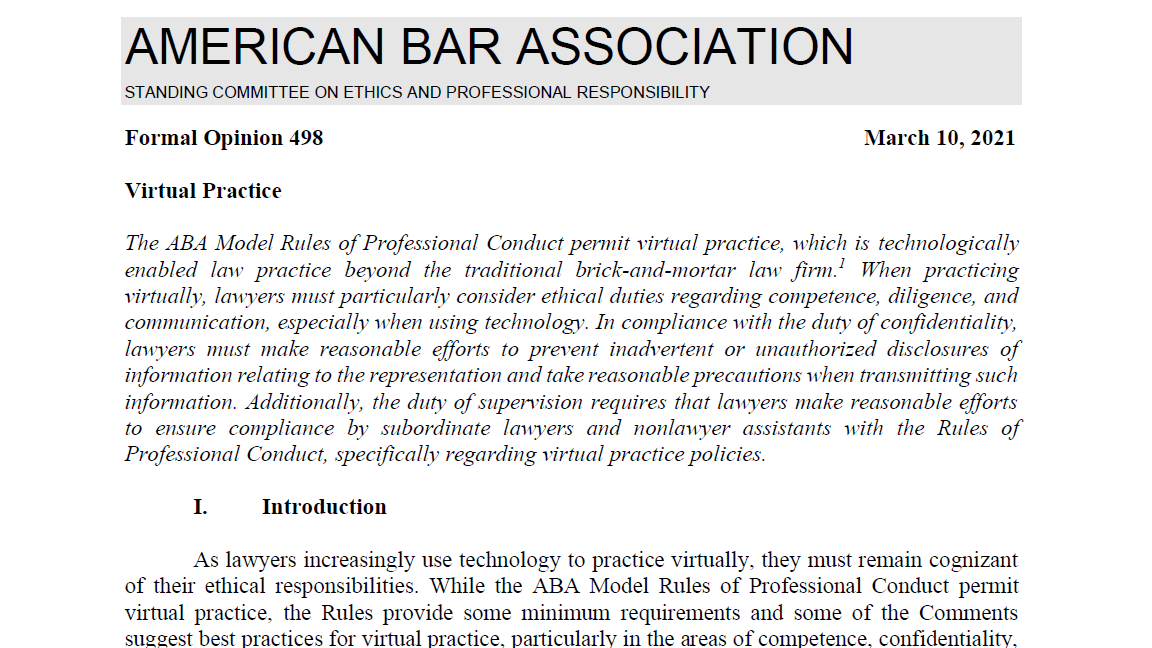The American Bar Association’s Standing Committee on Ethics and Professional Responsibility today issued a formal ethics opinion providing guidance on virtual law practices.
The opinion (Formal Opinion 498) makes clear that the Model Rules of Professional Conduct permit lawyers to conduct their practices virtually, but it urges caution, competence and diligence with regard to the use of technology in order to guard against inadvertent or unauthorized disclosures of client information.
It also emphasizes the importance of appropriately supervising remote staff and outside vendors, and of adhering to state variances in trust accounting rules.
“The ABA Model Rules of Professional Conduct permit lawyers to conduct practice virtually, but those doing so must fully consider and comply with their applicable ethical responsibilities, including technological competence, diligence, communication, confidentiality, and supervision,” the opinion concludes.
The opinion addresses a variety of the technology issues that may arise in a virtual practice, particularly with regard to a lawyer’s duty to be competent in technology, to maintain client confidences, and to supervise staff.
“Lawyers should have plans in place to ensure responsibilities regarding competence, diligence, and communication are being fulfilled when practicing virtually,” the opinion says.
With regard to confidentiality, the opinion says that lawyers have a responsibility to take reasonable precautions when transmitting client information.
“At all times, but especially when practicing virtually, lawyers must fully consider and implement reasonable measures to safeguard confidential information and take reasonable precautions when transmitting such information,” the opinion says.
The opinion goes on to address and provide guidance on specific types of technology:
- Hardware and software. Lawyers should carefully review terms of service, be diligent in installing security updates, and use strong passwords and encryption.
- Accessing client files. If using a cloud service to access files, lawyers should choose a reputable company and ensure that it protects the confidentiality of client data and that data is regularly backed up and secured.
- Virtual meeting platforms. Lawyers should review the terms of service of platforms to ensure they are consistent with ethical obligations. Access to meetings should only be through strong passwords, and any recordings or transcripts should be secured.
- Virtual document and data exchange platforms. Review terms of service to ensure that documents are being appropriately archived and that the service is secure.
- Smart speakers and virtual assistants. Lawyers should disable the listening capability of smart devices while communicating about client matters “unless the technology is assisting the lawyer’s law practice.”
The opinion also discusses the obligation of a managing lawyer who is practicing virtually to ensure that all members of the firm and any internal or external assistants operate in accordance with the lawyer’s ethical obligations.
It also cautions that lawyers practicing virtually “must make sure that trust accounting rules, which vary significantly across states, are followed.”
 Robert Ambrogi Blog
Robert Ambrogi Blog